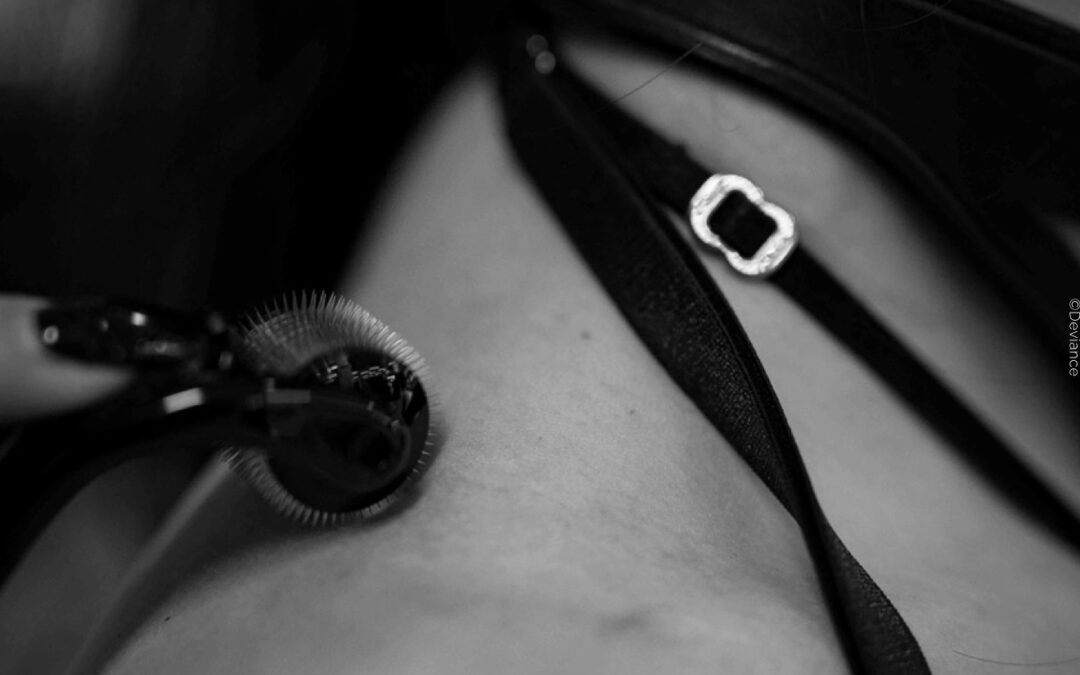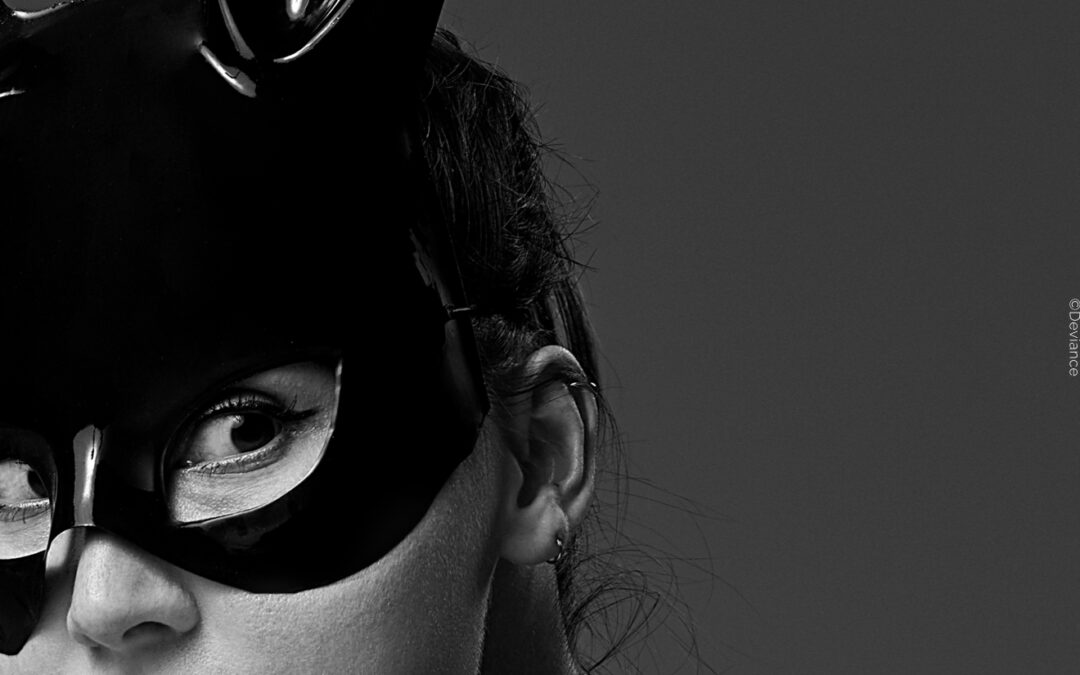For International Women’s Day, the members of the Deviance team introduce themselves in this series, sharing what drives them. This time: Initiator and founder Marina discusses how something that started as fun became serious, and why she hesitated for a long time to pursue her passion project.
“If I ever stop working with food, I’ll build a Tinder for BDSM!” That’s what I joked about at a BDSM meetup in Munich in the summer of 2018. It took eight months for this spontaneous remark to evolve into the beginning of Deviance. What held me back primarily was the topic itself. But I was also afraid of not being taken seriously in this field as a woman. In this text, I’d like to share why.
The idea didn’t let go of me; in every spare moment, often unconsciously, I mulled over the topic, developing a concept in my mind. Yet, I kept putting it aside. When I talked to friends, they always said, “Go for it! The topic is totally hot right now! Do you know Lea-Sophie Cramer from Amorelie?” When I spoke with people from the BDSM community, it was more like, “Pff, many have tried that already, you better not.” But often, it was also, “Yes, please! How can I help you?”
Deep black. Not pink.
Of course, there are these star founders in the startup world like Lea-Sophie Cramer, who are celebrated for their courage in building erotic businesses as women. And yes, I am very grateful to her and many other female founders who have paved the way in recent years for more projects addressing sexual or taboo subjects. Femtasy, Beducated, TheFemaleCompany, to name just a few.
Still, I couldn’t and still can’t stand the comparisons. I didn’t want to and still don’t want to jump on that bandwagon. Yes, BDSM is about empowerment and autonomy. But, folks, it also involves risky practices, pain, humiliation. It involves things considered as violence. It’s about people being seen as disturbed or sick if they like things beyond scenarios from Fifty Shades of Grey or if they enjoy wearing diapers. It’s about ideas and concepts of sexuality and relationships that the majority of society cannot reconcile with their own. And so, all of this is very far from the pink world of Amorelie and Femtasy.
That these concepts are rejected by the majority of society is of course due to superficial understanding and the stereotypes associated with various forms of play. But that’s another topic – also like other projects founded by women, such as Lustery and Ohlala, which also operate at higher levels of stigmatization.
The cold water of exposure
Entering this field and potentially shooting myself socially wasn’t an easy decision. As described above, despite encouragement from others, it took eight months to make this decision.
Because alongside these concerns, there was also the fear of what would happen if I, as a woman, spoke up about the issue.
A lot of bad things are assumed about women in BDSM in particular: If they are dominant, it’s because they actually hate men. If they like to be subjugated, beaten, or humiliated, then it is due to low self-esteem, so-called “daddy issues” or they want to deal with some kind of trauma. And fair game, because they are so dirty and have no taboos, they are independent of the style of play anyway. And so far we’re only talking about heterosexual cis women.
For me, it was clear that I wanted to remain anonymous. However, doubts soon arose: How can I encourage people to embrace themselves through a platform if I don’t do it myself? How can people believe in our mission of education and destigmatization if the founders themselves hide? After all, women especially lack sex-positive role models.
More than you think
BDSM has always been and continues to be part of our society. While data on the prevalence and preferences of BDSM and fetishes are sparse and often unreliable due to interpretative questions, one statistic has remained constant over the decades: five percent of people identify with BDSM as a lifestyle. That’s not insignificant.
It’s estimated that on average, a person has about 150 contacts with whom they regularly interact socially. That means each of us knows at least seven people who engage in quite a bit of kinky stuff behind closed doors.
That’s not even counting the adventurous ones who try a spank on the butt, order the Shades of Grey beginners’ box, or play the strict teacher with a cane. Nor does it include those who secretly search for “pissing,” “pegging,” and “bondage” on porn sites. And it certainly doesn’t include those whose minds flicker with BDSM fantasies that they quickly push aside because their beliefs label them as “sick.”
End the loneliness
As much fun as it brings us, our community unfortunately also experiences loneliness. Unlike other lifestyles that were once considered repulsive but are now increasingly accepted, our preferences are still a societal taboo.
We don’t know who the 20th person in our circle of acquaintances is because we don’t talk about these kinds of preferences. We don’t know how to classify our fantasies because no one tells us it’s okay to have them.
We only explore ourselves fully when we can completely rule out rejection. This is not only exhausting but also causes us to miss out on many opportunities without even realizing it.
We want to change that. We want all these people who unknowingly hide from each other to come together. We advocate for education and safe exploration. Because when BDSM isn’t talked about, a lot goes wrong, yet it still happens. We also want society to learn from the BDSM community, which is far ahead in many aspects—just think of communication and consent. And if my outing leads to social exclusion and discrimination as a woman, it only underscores how crucial and urgent this work is.









